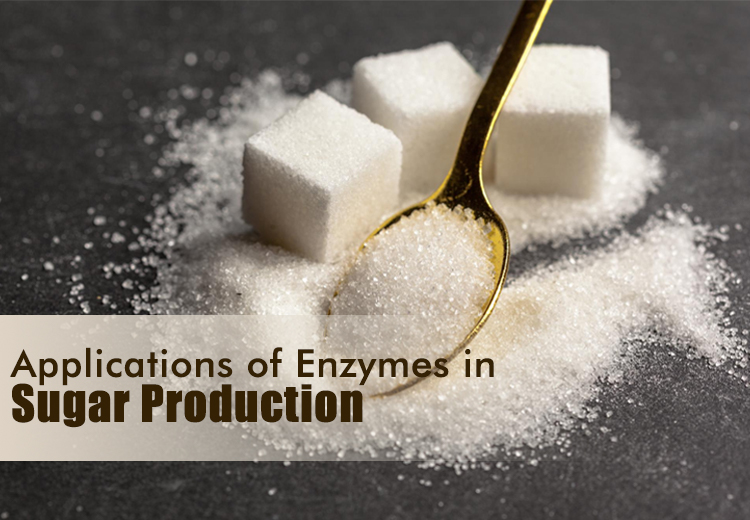
Explore The Significance of Enzymes: Applications of Sugar Processing Enzymes
There is one thing to look after during the ongoing progress of sugar processing – it’s Durability. Increasing its durability for the largest production outcome is the main goal. These objectives are achievable in the industry procedures. In which the application of enzymes is useful. Enzymes are the perfect source as they are the organic catalysts. That is the best trait! They are showing many benefits in the sugar processing industry. The sugar production has enhanced. Through this whole sugar enzyme mechanism, harmful effects on the environment are minimizing. This article represents the fruitful applications of enzymes in sugar. Here you will discover the importance and the advantages of sugar processing enzymes.
Introduction
Usually, we can extract and purify sugar through many sources of information. That includes sugarcane and sugar beet plants. We can achieve such development of sugar with labour or a heavy energy process. This action is the processing of sugar. In an actual scenario, this cycle of sugar processing asks for extensive use of chemicals and extreme heat.
So, the introduction of enzymes for the sugar manufacturing process is showing absolute changes. Organic proteins known as enzymes cater as catalysts for chemical reactions. This increases their speed without consuming it. The use of these enzymes improves the sugar manufacturing process with sustainability. Which helps in maintaining the quality of the end result.
Enzymes Used in Sugar Processing:
The sugar manufacturing process includes the use of a few of the enzymes. Where each enzyme contributes to a separate phase. Have a look at the enzymes listed below that involve sugar digestion.
- Invertase: With the help of invertase enzymes, sucrose gets broken down into the components of sugars, glucose, and fructose. In the confectionery business, this method is vital to generate the liquid sugars.
- Amylase: Sugar beetroot or its amylum or starches are converted into plain sugar with the process of Amylase Enzymes. In the sugar factory process, it is the first step to produce sugar enzymes.
- Glucose Isomerase: Fruit sugar is created when glucose is transformed into isomerase. The crucial phase of the procedure is to use High Fructose Corn Syrup (HFCS) to sweeten the food and beverages.
- Pectinase: Pectin is represented as one of the most complicated carbohydrates. The cells of plants contain such carbohydrates. With the help of Pectinase Enzymes, such as carbohydrates break down. In the cleaning and purification of sugar syrups, pectin removal is crucial.
- Cellulase: Just like the pectin carbohydrates, cellulose is also one of the complex carbohydrates. With the aid of cellulase enzymes, this carbohydrate gets fragmented into smaller and basic sugars. In some of the sugar manufacturing processes, cellulase enzymes are a feasible choice, albeit in rare cases.
The Role of Enzymes in Sugar Production
In a method of making sugar, enzymes contribute at various points along the way. Let’s look more closely at these uses:
Applications of Enzymes in Sugar Production
- Process of Clearing Raw Juice
In the process, the sugarcane or sugar beet juice gets collected in its raw state. Where the enzymes break down the polluting substances. Such a purification technique offers a guarantee that the juice is pure. And we can state that it does not contain any bad matters or pollutants.
- Saccharification
Amylases and glucosidases are two specimens of the enzymes. They apply to the process of converting starch in the fermentation of sugar. This process is vital in generating ethanol and alternative biofuels that carry sugar.
- Invert Sugar Manufacturing
This process comprises the breakdown of sucrose into its components like sugar, fructose, and glucose. And respectively the enzymes get employed in them.
To break down sucrose into its component sugars, fructose, and glucose, respectively, enzymes are employed. In the beverage and confectionery sectors, inverting sugar is crucial.
Enzymes are used to hydrolyze sucrose into its constituent sugars, glucose, and fructose. Invert sugar is essential in various confectionery and beverage industries.
- Reducing Sugar Content
Fruit juices and beverages or any other goods should be healthful and nutritious. To preserve their flavour, enzymes come into the picture. Enzymes assist in reducing the amount of sugar in the beverages.
- Taking Environmental Initiatives
Enzymes validate the reduction of temperature operation, while it complies with the environmental practices that decrease the usage of energy as well as the emission of greenhouse gases.
- Raising the Productivity
Enzymes are the catalysts that proffer a greater quantity of the identical amount of the original sugar substance. All this is achievable through the optimisation of enzymes for sugar extraction.
Conclusion
Enzymes’ utilization in the sugar manufacturing process is revolutionary. It improves manufacturing and sustainability with ecological friendliness. Enzymes work as a flexible mechanism. They promise to inspire the future of sugar enzyme manufacturing. Their goal is to deliver purified raw juice with minimum climate effects.
The application of Enzymes in Sugar improves the products’ quality grade-wise. With this process, the industries now also promote sustainability keeping the environment a priority. This is the reason that enzymes are becoming more and more vital. Most importantly sectors are now developing in terms of determining their destiny.


